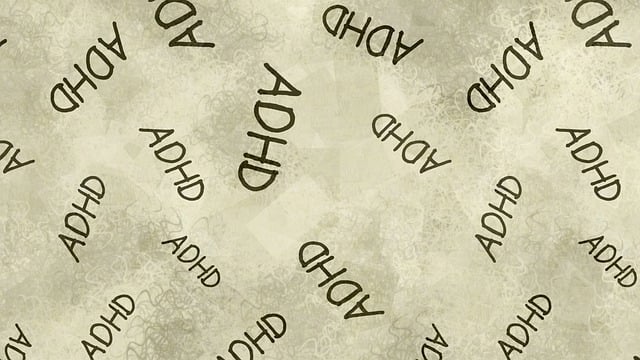Civil commitment proceedings balance public safety and civil liberties for individuals posing risks without meeting hospitalization criteria. Bias based on race, ethnicity, and socioeconomic status is a growing concern. Legal advocates play crucial roles in ensuring due process, competent representation, informed consent, and fairness. Strategic legal challenges and community support post-proceedings are vital to address systemic biases and promote just reintegration.
In the realm of mental health care, civil commitment proceedings play a crucial role in balancing individual freedoms with public safety. However, concerns have arisen regarding potential biases in commitment decisions, raising questions about fairness and justice. This article delves into understanding civil commitment proceedings, exploring the growing concern of bias, and emphasizing the vital role of legal advocates in ensuring equality. We also present strategies to challenge unjust commitments and highlight support mechanisms for individuals post-release.
- Understanding Civil Commitment Proceedings
- Bias in Commitment Decisions: A Growing Concern
- The Role of Legal Advocates in Ensuring Fairness
- Strategies to Challenge Unjust Commitments
- Supporting Individuals Post-Civil Commitment Release
Understanding Civil Commitment Proceedings

Civil commitment proceedings are legal processes aimed at confining individuals who pose a danger to themselves or others, but do not meet the criteria for involuntary hospitalization. Unlike criminal cases, these proceedings focus on public safety and well-being rather than punishment. The process involves a comprehensive evaluation of an individual’s mental state, behavior, and potential risk to society. It requires a balanced approach to ensure that civil liberties are respected while maintaining public security.
Understanding the nuances of civil commitment proceedings is crucial because it helps demystify the system and advocate for fair treatment. This includes ensuring due process rights, access to competent legal representation, and informed consent. By navigating these complex procedures, advocates can protect the interests of those in need while upholding the principles of fairness and justice within the legal framework.
Bias in Commitment Decisions: A Growing Concern

Bias in commitment decisions, particularly within civil commitment proceedings, has emerged as a significant and growing concern. Studies have shown that certain demographic factors, such as race, ethnicity, and socioeconomic status, can significantly influence the outcomes of these cases. This raises serious questions about fairness and equity within our legal system. For instance, research indicates that individuals from marginalized communities are often subject to more restrictive commitments and face longer durations compared to their peers.
This bias is not merely a statistical anomaly but reflects deeper societal prejudices that infiltrate decision-making processes. The implications are profound, as unfair treatment in civil commitment cases can have lasting detrimental effects on the lives of those affected, disrupting families, careers, and social integration. Recognizing and addressing this issue is therefore paramount to ensure that justice is served and that civil commitment proceedings are conducted with integrity and impartiality.
The Role of Legal Advocates in Ensuring Fairness

Legal advocates play a pivotal role in ensuring fairness within civil commitment proceedings. Their primary responsibility is to represent and defend the rights of individuals who are subject to these legal processes, which can be complex and often overwhelming for those involved. These advocates act as guardians, ensuring that every step of the process adheres to legal principles and constitutional guarantees.
By challenging unfair practices and advocating for their clients’ interests, legal advocates help maintain the integrity of civil commitment proceedings. They scrutinize evidence, examine procedural aspects, and provide crucial guidance, thereby fostering a more balanced and just outcome. Their presence acts as a buffer against potential abuses, ensuring that individuals receive fair treatment during these critical legal interventions.
Strategies to Challenge Unjust Commitments

Challenging unjust commitments in civil cases requires a strategic approach. Legal professionals advocating for fair treatment should explore several tactics to ensure due process is followed. One key strategy involves meticulous review and analysis of evidence presented during commitment proceedings. This includes examining the veracity of medical evaluations, mental health assessments, and any testimony that forms the basis of the commitment order. If there are discrepancies or if the evidence is deemed insufficient, legal challenges can be mounted to overturn the commitment decision.
Additionally, presenting alternative treatment options and advocating for less restrictive measures can be powerful strategies. This might involve suggesting community-based programs, therapy, or support groups as alternatives to civil commitment. By doing so, advocates can demonstrate that there are viable paths to addressing underlying issues without resorting to more extreme measures, thereby fostering a fairer and more compassionate approach to civil commitment proceedings.
Supporting Individuals Post-Civil Commitment Release

After completion of civil commitment proceedings, supporting individuals in their transition back into society is paramount. This includes providing mental health resources and regular check-ins to address any ongoing needs. Many former patients may struggle with reintegration, requiring assistance in finding stable housing, employment, and access to continued care.
Community outreach programs play a crucial role in facilitating this process. By offering job training, housing support, and social services, these initiatives help individuals regain independence and self-sufficiency. Additionally, peer support groups provide a safe space for sharing experiences and building resilience among those who have undergone civil commitment proceedings.














